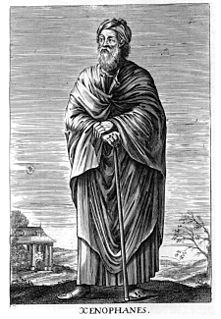A Quote by James Branch Cabell
In the beginning the Gods made man, and fashioned the sky and the sea, And the earth's fair face for man's dwelling-place, and this was the Gods' decree: "Lo, We have given to man five wits: he discerneth folly and sin; He is swift to deride all the world outside, and blind to the world within: So that man may make sport and amuse Us, in battling for phrases or pelf, Now that each may know what forebodeth woe to his neighbor, and not to himself.
Related Quotes
A man's a man for a' that. . . . . A prince can mak a belted knight, A marquis, duke, and a' that; But an honest man's aboon his might, Guid faith he mauna fa' that! . . . Then let us pray that come it may, As come it will for a' that, That sense and worth, o'er a' the earth, May bear the gree and a' that. For a' that, and a' that, It's comin' yet, for a' that, When man to man, the world o'er, Shall brithers be for a' that.
The Gods did not reveal, from the beginning, all things to us, but in the course of time through seeking we may learn & know things better. But as for certain truth no man knows it, nor shall he know it, neither of the Gods nor yet of all things that I speak. For even if by chance he were to utter The Final Truth, he would himself not know it: for all is but a woven web of guesses.
God himself was once as we are now, and is an exalted man, and sits enthroned in yonder heavens! That is the great secret.... It is the first principle of the Gospel to know for a certainty the Character of God, and to know... that he was once a man like us.... Here, then, is eternal life - to know the only wise and true God; and you have got to learn how to be Gods yourselves... the same as all Gods have done before you.
It may be said that myths give to the transcendent reality an immanent, this-worldly objectivity. Myths speak about gods and demons as powers on which man knows himself to be dependent, powers whose favors he needs, powers whose wrath he fears. Myths express the knowledge that man is not master of the world and his life, that the world within which he lives is full of riddles and mysteries and that human life also is full of riddles and mysteries.
It is a proverbial expression that every man is the maker of his own fortune, and we usually regard it as implying that every man by his folly or wisdom prepares good or evil for himself. But we may view it in another light, namely, that we may so accommodate ourselves to the dispositions of Providence as to be happy in our lot, whatever may be its privations.
One of the proud joys of the man of letters - if that man of letters is an artist - is to feel within himself the power to immortalize at will anything he chooses to immortalize. Insignificant though he may be, he is conscious of possessing a creative divinity. God creates lives; the man of imagination creates fictional lives which may make a profound and as it were more living impression on the world's memory.
Even broken in spirit as he is, no one can feel more deeply than he does the beauties of nature. The starry sky, the sea, and every sight afforded by these wonderful regions, seems still to have the power of elevating his soul from earth. Such a man has a double existence: he may suffer misery, and be overwhelmed by disappointments; yet, when he has retired into himself, he will be like a celestial spirit that has a halo around him, within whose circle no grief or folly ventures.





































